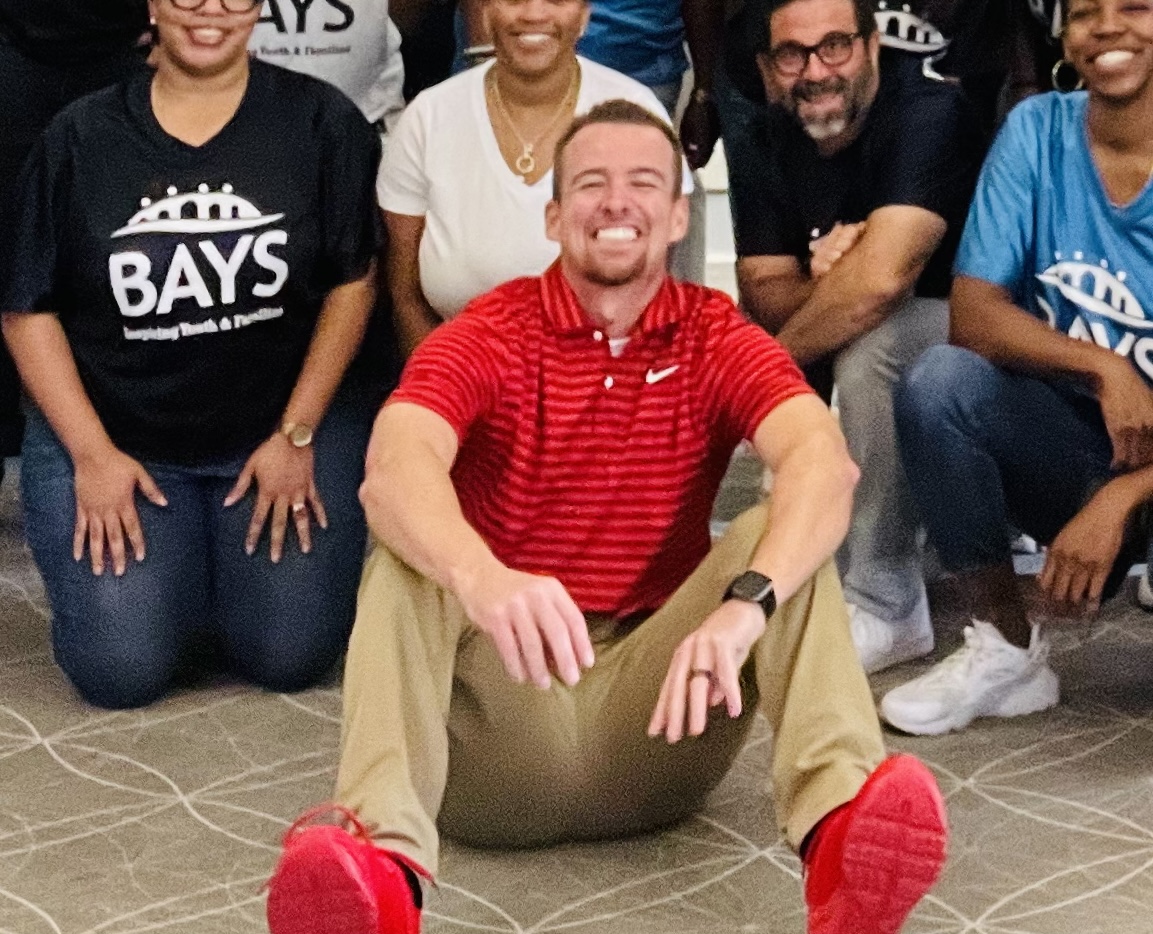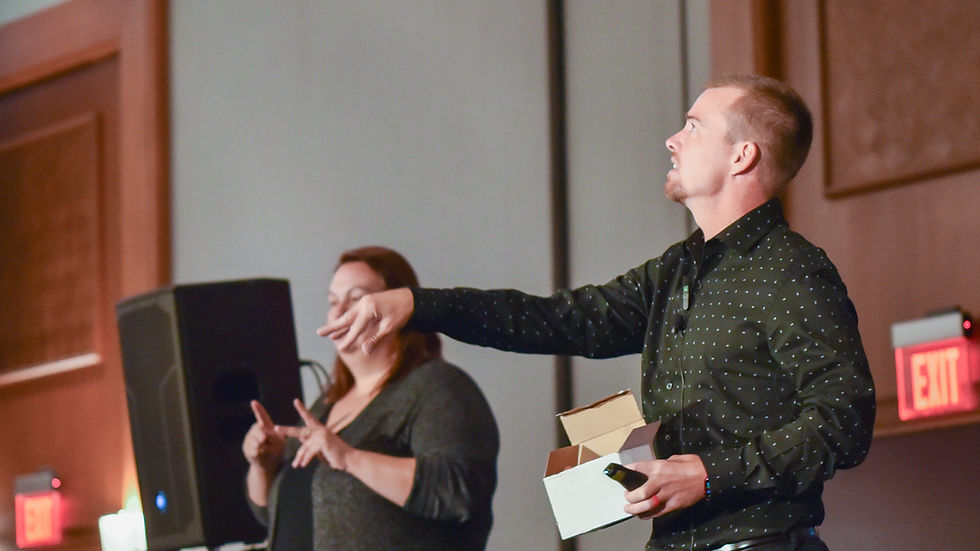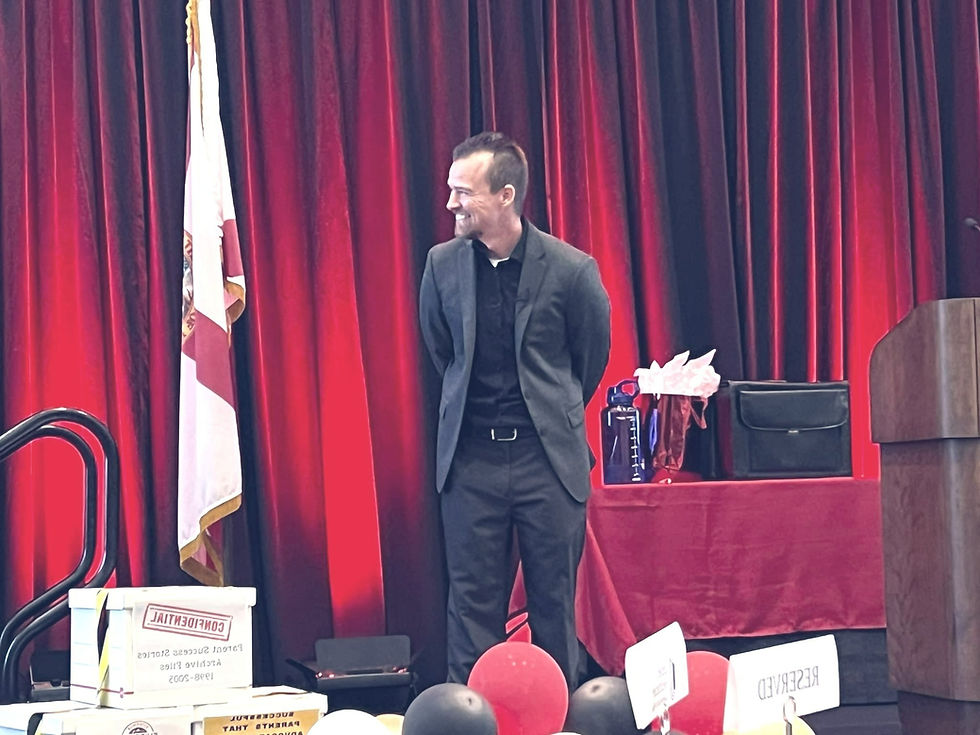Public Speaking Tips: Delivering Big Messages in Small Windows
- Curtis Campogni

- Sep 25, 2025
- 3 min read
As a professional speaker, the minimum time I usually get is an hour. That is enough to tell stories, build connection, and unpack solutions in detail.
At the recent Pinellas County Legislative Delegation, I had 1 minute and 30 seconds. And that included my introduction. No grace period. No second chances.
So how do you make every word count when the clock is against you? Here are the four strategies I used, strategies you can apply whether you are at a conference, a team meeting, or a public hearing.
1. Lean on Experience
Ok, it is cliché time: practice makes perfect. The only way to push through nerves is to get as many reps as you can.
Speak up at the end of meetings.
Volunteer to lead a presentation.
Show up at your local board or council meeting.
Every rep makes the next one easier. Experience builds muscle memory, and muscle memory builds confidence.
2. Rehearse Like It Matters
Before stepping to the mic, I rehearsed my remarks on a timer at least 10 times. I also prepared a backup version that could be delivered in under a minute in case something unexpected happened, like the audience laughing after I mentioned my mom, which I had not planned for in practice.
Great communicators do not just prepare for the speech, they prepare for the unexpected.
3. Know the Situation and the Audience
As soon as I arrived, I confirmed the exact time limit with the organizers. I also reached out to colleagues who had attended in the past to learn what made speakers effective and ineffective.
When the chair announced “90 seconds per speaker” before the session began, I was not surprised. I was ready.
Preparation is not just about what you say. It is also about understanding the environment, the rules, and the expectations.
4. Choose Confidence
Right before stepping to the mic, I took a deep breath and reminded myself: You have got this. No negative self-talk. No second-guessing.
The clock does not care if you are nervous. But your audience will notice if you are confident.
And confidence is a choice you can make before you say the very first word.
The Lesson
Strong communicators do not always get more time. They make the time they have work harder.
🎥 Watch the clip below to see how I timed the final word to land exactly as the countdown hit zero.
Reflection Question
What about you, what is the shortest amount of time you have had to make your point, and how did you handle it?
Bonus Tips: Handling Nerves Before You Speak
Even seasoned speakers feel it, that rush of nerves right before taking the stage. The difference is in how you manage it. Here are a few quick tools to calm your body and sharpen your mind:
Breathe Deep and Slow
Take two or three slow breaths, inhaling through your nose and exhaling through your mouth. This slows your heart rate and signals your body to relax.
Plant Your Feet
Stand tall with your feet firmly on the ground. A steady stance communicates confidence to both you and your audience.
Visualize Success
Close your eyes for a moment and picture yourself finishing strong, with the audience nodding along. This mental rehearsal eases anxiety.
Channel the Energy
Instead of fighting nerves, frame them as excitement. That energy can fuel your delivery if you direct it into your words.
Smile Before You Begin
Smiling reduces stress, projects warmth, and makes you feel more at ease, even if you have to fake it for the first few seconds.
Remember, nerves mean you care. With practice and the right tools, you can turn them into your advantage.
Disclaimer
If you are reading this, please know that the views expressed in this blog are solely those of the author and do not represent any other individual, organization, or company. This content is intended for general knowledge and to highlight tools, techniques, and ideas that inspire positive change. Readers are encouraged to explore the topics further and form their own conclusions.
About the Author
Curtis Campogni is the founder of Speak4MC, a trainer, author, and advocate focused on child welfare, workforce development, and juvenile justice. He is the author of C.A.P.E. Conversations: How Superheroes Communicate with the Child Welfare System and serves as Vice Chair of Florida’s Circuit 6 Juvenile Justice Advisory Board and Florida State Representative for the Southeastern Employment and Training Association.
Curtis only raises problems he is willing to actively work toward solving. His professional career demonstrates a consistent willingness to collaborate, listen to multiple perspectives, and pursue common ground and common-sense solutions to help children and families thrive.




Karachi mein local marketplace explore karni ho to KarachiLocalMarketplace best option hai. Yahan small businesses aur service providers easily connect ho sakte hain. Buyers ko reliable options aur sellers ko exposure dono milta hai.